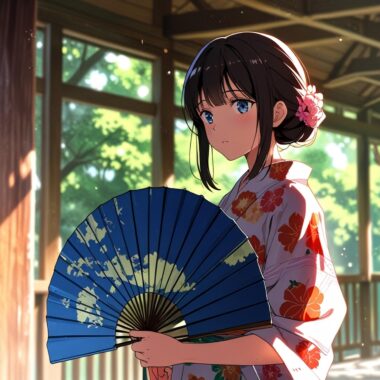Exploring the Rise of Fan Fiction in Online Communities
Fan fiction has become an integral part of online culture, bridging gaps between creators and fans. This phenomenon allows avid enthusiasts to explore narratives beyond the original works, fostering creativity and community engagement. In today’s digital landscape, platforms such as Archive of Our Own and Wattpad provide spaces for writers. Contributing to this genre encourages deeper emotional connections with the characters and settings loved by many. Such platforms have seen exponential growth in terms of readership and contributions, as they cater to diverse interests. Fans are not just passive consumers; many become active participants. This includes writing, sharing, and discussing their interpretations of beloved stories. A vast array of genres exists within fan fiction, including romance, horror, and alternate universes. Each offers unique perspectives and interpretations. The accessibility of these platforms has given rise to new styles, writing practices, and storytelling approaches. Therefore, fan fiction serves as a vibrant testament to creativity in ways that resonate with both the fanbase and the original artists. The implications of this growth offer rich fields of study and exploration of cultural phenomena.
Fan fiction showcases an extensive collection of narratives that expand on characters and plots we adore. Writers often delve into characters’ backstories or create entirely new scenarios. This form of storytelling enables readers to witness their favorite universes transform in infinite ways, keeping the original spirit alive while allowing personal interpretation. Bridging gaps through original works, fan fiction typically explores alternative endings. Many writers apply their voice and creativity by developing character arcs previously left unexplored. Some even address societal themes through their tales, tackling issues like identity, love, and self-discovery. The fan fiction community thrives on feedback and collaborative discussions. Writers and readers alike share insights to improve their craft, promoting a cycle of continuous improvement and engagement. Furthermore, fan fiction fosters inclusion and representation, with many authors showcasing characters from diverse backgrounds, cultures, and orientations. This approach cultivates a rich tapestry of narratives, making the storytelling landscape broader and more inclusive. With the advent of social media platforms, this community has expanded beyond typical boundaries, connecting fans across the globe. Thus, fan fiction serves as both entertainment and a vehicle for social change.
The Role of Online Communities in Fan Fiction
Online communities have revolutionized how fan fiction is created and shared, fostering a collaborative environment. Websites dedicated to fan works encourage interaction among authors and readers alike, offering a platform for support and feedback. This open dialogue helps writers refine their skills and fosters camaraderie. Fans often engage in discussions about their favorite stories or characters, making for vibrant exchanges of ideas. The dynamics of these communities eliminate barriers between creators and consumers. Readers evolve into writers motivated by enthusiasm and passion for the source material. The sense of belonging grows stronger in these digital spaces, enhancing the overall experience of engaging with fan fiction. Events such as challenges and prompts stimulate creativity within the community, pushing writers to explore new ideas and themes. As more people become involved, the sense of kinship among fans continues to strengthen. Participating in fan-created activities often leads to cherished memories and long-lasting friendships. Through these experiences, fans find common ground in a world that appreciates and celebrates their unique perspectives. Ultimately, these communities shape the future of storytelling in significant ways.
Moreover, online platforms facilitate the discovery of lesser-known authors while highlighting unique storytelling perspectives. This democratization of writing empowers voices that may not find representation in mainstream media. Aspiring writers gain visibility quickly through ease of posting, making it simpler to initiate their storytelling journey. Readers now have access to a diverse array of narratives that span various genres, catering to wide-ranging interests. Many existing communities celebrate niche genres, connecting like-minded individuals who share similar passions. This sense of community encourages fans to write and contribute creatively without fear of ridicule. Often, fan fiction subverts traditional tropes to bring forth innovative ideas. Experimentation leads to narratives that surpass conventional boundaries, aligning with changing societal norms and expectations. As authors interact with fans, they can receive immediate feedback, which enhances the overall quality and richness of storytelling among enthusiasts. These collaborations often lead to works that prove impactful and significant. As a result, online communities become breeding grounds for creativity, producing literary treasures that resonate deeply with readers worldwide.
Challenges Faced by Fan Fiction Writers
Despite the countless benefits, fan fiction writers face various challenges in their creative pursuits. Legal and ethical concerns often arise due to copyright issues. Established authors and publishers sometimes react negatively towards fan fiction, believing it infringes on their intellectual property. Many writers face uncertainty regarding how far they can push the boundaries of their creativity without crossing legal lines. This tension can stifle creativity for many eager authors. Furthermore, navigating the balance between original creation and fan response can be daunting. Some writers may find themselves torn between staying true to the source material and exploring innovative interpretations. Additionally, the pressure to fulfill readers’ expectations may lead to burnout. This is especially true when an author receives backlash or negativity. Despite thriving communities, some writer’s insights, and craftsmanship may sometimes go overlooked. Disheartening comments can affect motivation and drive. However, communities often offer guidance and support in navigating such challenges. Writers can benefit from this camaraderie, transforming difficulties into opportunities for personal growth and skill enhancement. Adapting to these challenges can foster resilience and allow authors to develop their unique writing styles effectively.
Furthermore, fan fiction’s influence extends beyond just individual narratives; it has altered traditional publishing patterns. Many publishers actively scout for original ideas from fan fiction spaces, recognizing the potential for captivating stories stemming from these communities. Numerous successful novels have emerged from fan fiction, illustrating its market viability. Works like ‘Fifty Shades of Grey’ and ‘After’ began as fan fiction before achieving commercial success. This crossover signifies an evolving acceptance of fan-generated content within the literary world, marking a notable shift in how publishers perceive storytelling. Increased interest in adaptation from fan works showcases their value, leading to renewed discussions about creative ownership and rights. The changing landscape of publishing has fostered an environment where emerging writers find opportunities, allowing them to share their narratives widely. Additionally, the conversation surrounding fan fiction continues to drive industry trends, shaping the types of stories readers crave. As the boundaries between fan fiction and traditional publishing blur, both authors and readers embrace this transformation. Ultimately, fan fiction paves the way for fresh narratives and creative explorations in an ever-evolving narrative landscape.
The Future of Fan Fiction
As fan fiction continues to evolve, the future looks promising for potential storytelling. With advancements in technology, more platforms will emerge to facilitate writing, sharing, and community engagement. Innovations such as virtual reality and augmented reality could bring these narratives to life in whole new ways. Readers hunger for immersive experiences, and technology is well-positioned to address this demand. Authors may have opportunities to explore alternative mediums, such as podcasting and animated formats, expanding storytelling horizons. Becoming a multi-dimensional experience can capture audience attention in more engaging ways. The next generation of writers may take fan fiction to astounding levels, utilizing innovative techniques that stimulate creativity amongst peers. Additionally, as cultural representation remains pivotal, fan fiction will continue to champion diversity, showcasing varied voices and experiences. This growth could solidify fan fiction’s role in shaping mainstream media and narratives within larger discussions. As acceptance builds, the genre’s significance will undoubtedly resonate further, influencing how stories are told. Longview, fan fiction possesses the potential to continuously redefine narrative contours while establishing a deeper connection between authors and readers.
In conclusion, fan fiction has become a dynamic aspect of online culture, blending creativity and community interactions. Fans transform their relationships with stories, writers, and characters through active participation in shaping narratives. As online communities empower writers and generate countless tales, the rise of fan fiction continues to leave a profound imprint on artistic expression. While challenges persist, collaborative spaces offer a platform for nourishing creativity, self-expression, and inclusivity. The ongoing evolution of this genre reflects societal changes, advocating for diversity and representation. Traditional publishing is beginning to recognize the significance of fan-led narratives and adaptations as a powerful influence shaping storytelling dynamics. Therefore, the phenomenon of fan fiction expands beyond simple engagement, offering valuable perspectives on broader cultural conversations. It reveals how art encompasses various formats and fosters connections that transcend geographical barriers. In a rapidly changing digital world, fan fiction creates an opportunity for aspiring writers to share their voices authentically and passionately. The legacy of fan fiction endures as both a celebration of creativity and a testament to its power in uniting people. Thus, it holds a promising future filled with endless storytelling possibilities.





